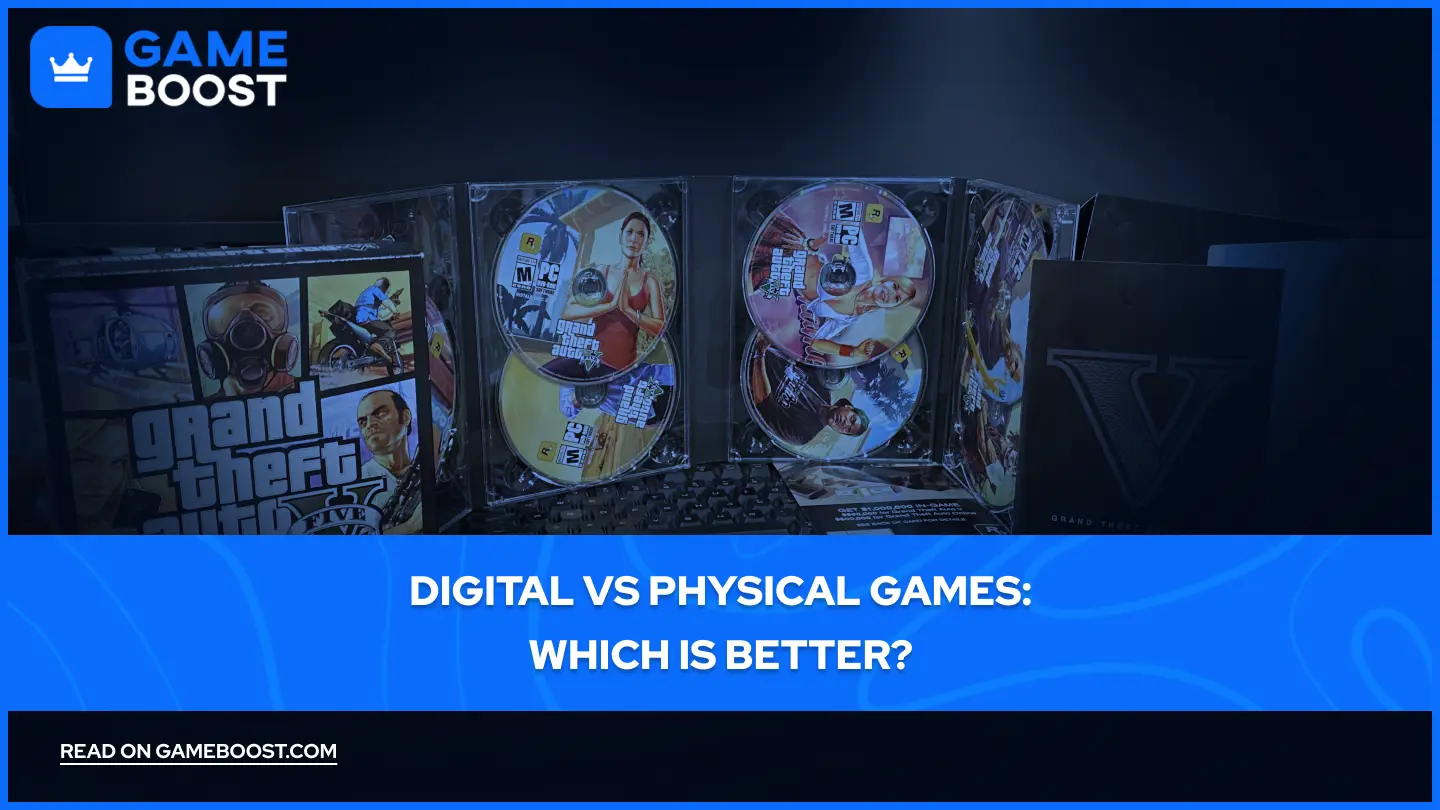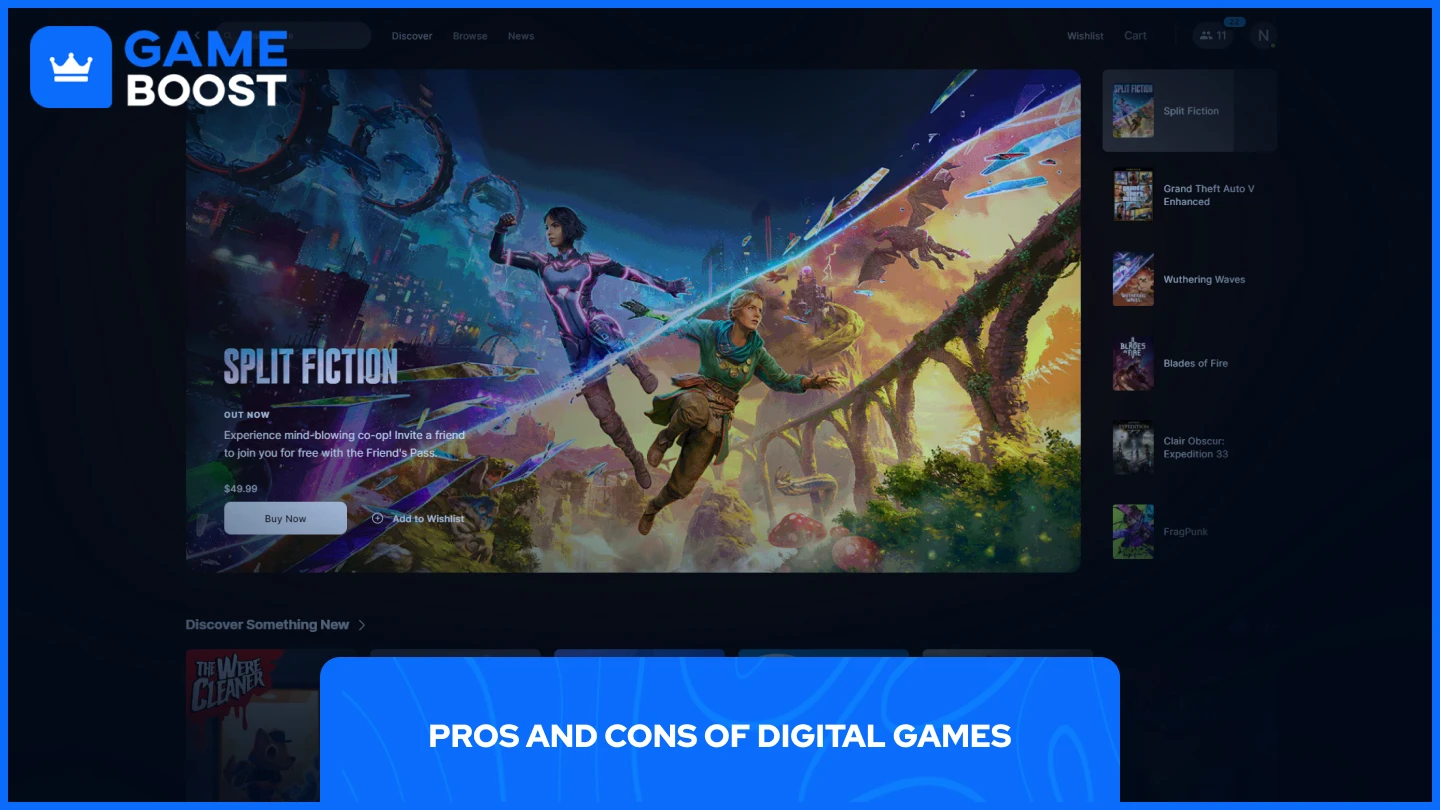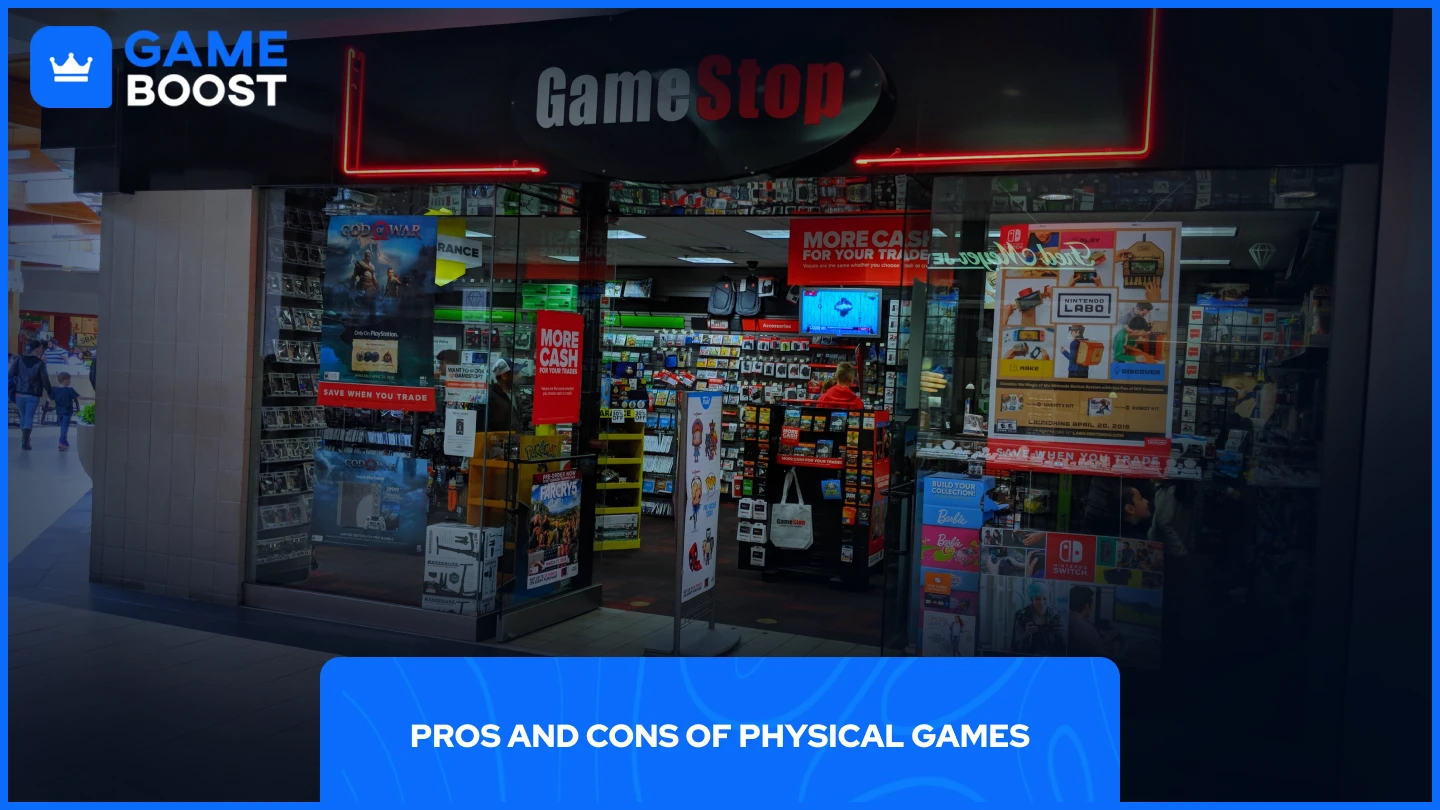

Digital vs Physical Games: Which Is Better?

Physical games ruled the gaming world for decades. Gamers lined up outside GameStop locations eagerly awaiting new releases, clutching their pre-order receipts. But digital games have steadily gained ground through platforms like Steam, Epic Games Store, and console marketplaces.
The choice between digital and physical games isn't straightforward. Each option comes with distinct advantages and limitations that impact how you purchase, play, and maintain your game collection.
In this article, we’ll examine the key differences between physical and digital games. We'll explore the benefits and drawbacks of each format, covering everything from convenience and cost to resale value and longevity.
If you’re looking to buy game keys, GameBoost is the way to go. With instant delivery, 24/7 live chat support, and competitive pricing, GameBoost is the ideal choice for everyday gamers.
Also Read: How to Redeem a Rockstar Activation Code: Step-by-Step Guide
Pros and Cons of Digital Games

Digital games have transformed how players build and maintain their gaming collections. As online distribution platforms expand, more gamers are weighing the benefits and drawbacks of going digital. Here's what you should consider before making a purchase.
Pros
Digital games eliminate waiting times entirely. Pay for the game and it's in your library immediately - no lines outside stores, no midnight releases, and no shipping delays. You never have to worry about losing or damaging physical discs since your entire collection stays securely in your account. Games update automatically in the background, removing the hassle of manual patching or installation.
Digital games can be installed on multiple compatible devices using the same account. This flexibility allows you to play your games on your desktop, laptop, or handheld game console without purchasing additional copies, making your library more accessible regardless of where you choose to play.
Cons
You don't actually own digital games—you're purchasing a license to play them. This arrangement prevents you from reselling, trading, or sharing games with friends. If the digital storefront shuts down or removes the game from their platform, you could permanently lose access to titles you've paid for.
Many digital platforms like Epic Games Store require constant internet connectivity to verify ownership and provide access. This creates problems for players with unreliable internet connections or those who frequently game while traveling or in areas with poor connectivity.
Also Read: What Is a Game CD Key? A Beginner’s Guide
Pros and Cons of Physical Games

Physical games remain popular despite the digital revolution. Many gamers still prefer discs for specific advantages they offer. Consider these benefits and limitations before expanding your physical collection.
Pros
Physical games provide true ownership. When you buy a disc, it's yours to keep, sell, trade, or display. Your games become part of a visible collection, giving a sense of pride and value that digital purchases can't match.
Physical games work offline without restrictions. No internet connection required to verify ownership or launch your game. This makes physical copies ideal for players with unreliable internet or those who prefer gaming without network dependencies.
Cons
Physical media requires careful handling and storage. Discs can be lost, scratched, or damaged, potentially rendering your purchase unusable. Game cases consume physical space, creating storage challenges as your collection grows.
Physical games need manual updates. When developers release patches or additional content, you must connect to the internet and manually download updates. This creates extra steps compared to the automatic background updates of digital games.
Also Read: How to Redeem Steam Codes: Step-by-Step Guide
Which is the Better Choice?
The best choice between digital and physical games depends on your priorities and playing habits. Digital games excel in convenience - no storage concerns, instant access, and automatic updates. If you value simplicity and immediate gratification, digital distribution is compelling.
Physical games remain superior for collectors and those who want true ownership. The ability to resell games helps offset initial costs, and physical media works even if internet service goes down or storefronts close. Players in areas with poor internet connections benefit significantly from physical media.
Consider your space constraints too. Digital libraries require no physical storage, while disc collections need shelving and organization systems. Your platform matters as well - PC gamers have largely transitioned to digital, while console players still enjoy robust physical game markets.
Final Words
Both digital and physical gaming formats have clear advantages and disadvantages. Digital games offer unmatched convenience with immediate access and no storage requirements. Physical games provide true ownership with resale options and independence from internet connections.
The ideal approach for many gamers is a hybrid strategy - buying physical copies of beloved titles for collection purposes and lifetime access, while purchasing digital versions of casual games or titles with significant online components.
You're finished reading, but we have more informative content that you could learn from. In addition, we offer game-changing services that can elevate your gaming experience to the next level. What would you like to do next?
“ GameBoost - Mustafa Atteya has been writing about gaming and esports since 2023, specializing in competitive game content and player improvement guides. At 24, he brings both hands-on gaming experience and professional SEO writing expertise to the GameBoost team.”


